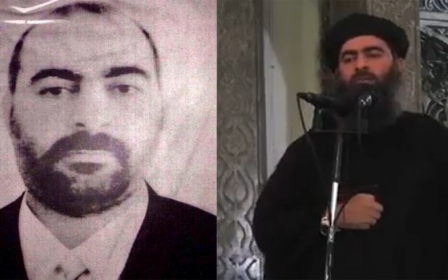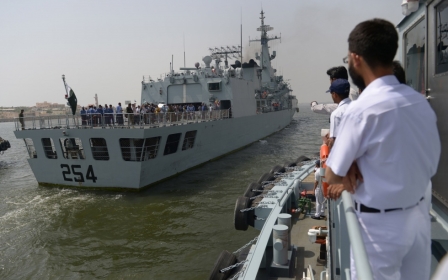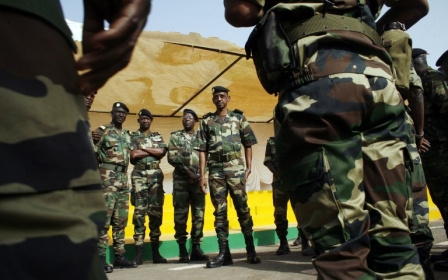Yemen ceasefire under strain despite Houthi withdrawal from border

Houthi fighters withdrew almost completely from the border area between Saudi Arabia and Yemen on Friday morning, as their fighters engaged in fierce fighting in the south of the country.
The Houthi withdrawal, first reported by Sky News Arabia, came after a ceasefire announced by Saudi Arabia that has held since Tuesday despite reports of violations by the Houthis.
The militia group, which has been pounded by airstrikes from a Saudi-led coalition since late March, appeared on the back foot on Friday after reports of the death of a top field commander, Abu Ali al-Hakim.
Saudi-owned al-Arabiya said he died as a result of injuries sustained in a previous attack.
The news, which is yet to be confirmed by the group, would be a “huge blow” to the Houthis, according to Hisham al-Omeisy, a Yemeni analyst living in the capital Sanaa.
Hakim is considered second-in-command in the group, after its shadowy leader, Abdel Malik al-Houthi.
Imprisoned in Sanaa during the Houthi insurgency that began in 2004, Hakim escaped to play a leading role in the military campaign that saw the group advance from their mountainous stronghold in northern Yemen to take control of the capital last September.
In November 2014 Hakim was named in a list of UN sanctions, among a group of Houthis and allies of deposed former president Ali Abdullah Saleh, who is working alongside the Houthis.
Despite news of a Houthi withdrawal from the Saudi border, reports from the south of Yemen suggested that clashes between Houthis and local fighters were intensifying, calling into question the durability of the ceasefire.
Eleven Houthi supporters were killed in clashes with the local resistance forces in the southern city of Taiz, where local journalist Mareb al-Ward reported that the group was shelling residential areas of the city on Friday morning.
Translation: Sheikh Hamoud Saeed al-Mikhlafi, a leader of the popular resistance in Taiz, leads his fighters in the field #Yemen #RestoreHope
Saudi Arabia, which agreed to a US-brokered ceasefire this week, has said it will uphold its end of the ceasefire deal despite reports of violations by the Houthis.
However, the UN warned on Friday that any further uptick in violence would hamper efforts to deliver humanitarian relief in Yemen, where civilians have been cooking food on stoves which run off sawdust amid a huge shortage of fuel and supplies.
“The continuation of violence in Yemen complicates the arrival of aid to civilians,” the UN’s humanitarian co-ordinator told a press conference in Geneva via video-link from Sanaa.
Johannes van der Klauw called on Saudi Arabia to lift an inspection regime imposed on all boats and planes arriving in Yemen.
“The arms embargo and its inspection regime results in commercial goods, be it by air or ship, no longer reaching the country,” Klauw said.
“The inspection regime needs to be made faster so that commercial and also humanitarian imports of fuel in the first place and also food and other life-sustaining necessities can be resumed."
Klauw stressed that accessing oil is a key priority for crisis-hit Yemen, warning that if it does not arrive imminently hospitals across the country will have to shut down.
New MEE newsletter: Jerusalem Dispatch
Sign up to get the latest insights and analysis on Israel-Palestine, alongside Turkey Unpacked and other MEE newsletters
Middle East Eye delivers independent and unrivalled coverage and analysis of the Middle East, North Africa and beyond. To learn more about republishing this content and the associated fees, please fill out this form. More about MEE can be found here.




